- Memories of Nicholas Schaffner and The Beatles Forever - January 4, 2026
- Old Draft: Beatles Folk Memory 1970-1995 - December 8, 2025
- Lights are back on. - December 8, 2025
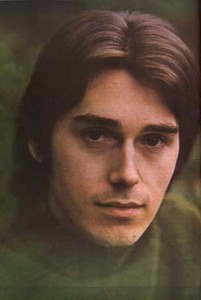
Emitt Rhodes, four musicians in one.
“I hate those guys [The Beatles]! They ruined my life!”—Emitt Rhodes
For a while I’d heard about Emitt Rhodes, famously called “the one man Beatles,” but I’d never actually heard him. So I gave a listen and (unsurprisingly) liked it enough to share.
Rhodes’ career is a fairly standard Sixties story: guy forms a band with some buddies; gigs around for a couple years; is spotted by an A&R man and given a contract; records an LP which, while good, doesn’t catch fire; then struggles to fulfill his contract in a business more interested in the bottom line than in art. (Oh, and there are some managerial rip-offs in there, too.)
A lot of my recent natterings on this site—from my reverence for Brian Epstein, to my sad head-shaking at John Lennon’s behavior post-India—come down to this: talent is only one part of what brings great art to a mass audience. And it’s an even smaller part of what keeps an artist clothed and fed. Success requires lots and lots of happy circumstances, and when everything’s working, it’s nothing short of a miracle.
To undervalue any one of these moving parts, or worse yet, purposely sabotage the mechanism, strikes me as self-centered and ungracious, in the way that children can be. When I hear John and George bitch about the fans, or fans gripe about Epstein’s botching Seltaeb, I think, “You have no idea how bad it can be. You can write great music and not get famous; or write a #1 and not get paid (I have my own stories about that); or lose your rights through a swindle; or, because you’re too poor to defend yourself, just get robbed (again, happened to me)—which keeps you too poor to defend yourself.”
The Beatles story isn’t just about winning the Irish Sweepstakes, it’s about winning them every six months from 1963-1967…then getting bored with the guys you pick the numbers with. To listen to John Lennon talk about being miserable in 1967, and then compare it to what could’ve happened to him—that “playing Vegas” was the worst thing he could imagine shows just how protected and fortunate he’d been.
So when I listen to The Beatles, I also try to hear (with my “third ear”!) all the might-have-beens and almost-weres and one-hit-wonders and industry casualties. When it works out—when everything works out—it’s precious. And when it works out, I’ve always felt you kinda owe it to all the near-misses to produce as much good work as you can, for as long as you can.
There’s a documentary about Emitt, which I haven’t seen but I suspect Devin has. The trailer is below—should I seek it out? There’s also a nice ER appreciation on this page; and a great Record Collector article linked from this page. If there are better Web resources, suggest ’em, and I’ll add them to this post. (BTW, I’m listening to the stuff on the Willard’s Wormholes page linked above, and Jesus Christ what great pop songs.)


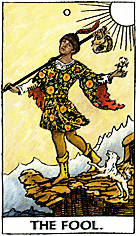

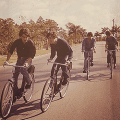
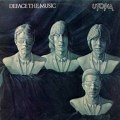
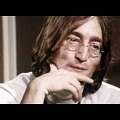




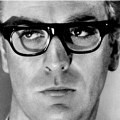

Interesting that Rhodes said that about hating the Beatles, when it seems clear to me that they pretty directly inspired his best work. And his best work is indeed very good: in its annotation on one of his albums, Reckless Records refers to it as “Paul McCartney’s second-best solo album,” only partly tongue-in-cheek.
I like Rhodes’ work and think he deserves greater recognition, but I also think he can be overrated by people in the same way Nilsson can (the underdog syndrome).
The mid 60s-early 70s was a tough time to be a very good musician or band covering roughly the same ground as the giants who were walking the earth. Recently I was prompted to give my copy of the Dave Clark Five’s greatest hits album a spin after hearing one of their songs on the radio, and was surprised by how well it holds up. They have a record of solid songs that can almost stand up to a second-tier Beatles album.
Nancy, in the context of the interview, that quote was strictly tongue-in-cheek.
Interesting you mention Nilsson, because I hear him as much as I hear McCartney in Rhodes’ work. And a further thought: both Nilsson and Rhodes were solo acts, whereas The Beatles had each other to rely on, turn to, and enhance each other’s work. That’s the thing about The Beatles–because they got together young, and developed together (and because they weren’t plucked too early by A&R people looking for ‘the next Beatles’), John, Paul, and George could all develop as A-level talents. Nilsson and Rhodes were Lennons who needed a McCartney or vice-versa, and if they’d found it, not only would their music have been better—their songs often sound 85% done to me—they would’ve been able to handle the slings and arrows more effectively, and perhaps been less done in by heavy weather inside their heads.
Good point about the power of collaboration vis a vis the Beatles, Michael. And thank God they were left relatively alone long enough to develop their talents before the spotlight began baking down on them. There’s a huge amount of luck in play there.
However, it’s also true that the Beatles sought and embraced that collaboration. I think of John deciding to ask Paul to join forces with him after that fateful day in Woolton, even though John recognized that doing so would mean he was no longer the sole kingpin in the group. That took real courage, and a measure of humility.
“The next Beatles” is the kiss of death for any group; “the one-man Beatles” is the same for a solo artist, only more so. No one can live up to that title, and it’s unfair to expect anyone to do so (I include the former Beatles here). I’d like to see that documentary about Rhodes, because from what I’ve read it truly sounds as if the contract he was under would have destroyed anyone.
I’d also like to see that documentary, Nancy, but it’s nowhere to be found. If I can find it, I’ll post a link/info on the site.
For all his ego, Lennon was a great believer in collaboration and that is very much to his credit.
Nancy, I love the Dave Clark Five. A song like “Because, ” for example, is a beautiful as any rock ballad of its time, if not better. Lead singer, Mike Smith, had a great voice for rock and roll. Likewise, your comment regarding John Lennon’s “courage and measure of humility” are right on the money. Lennon knew talent when he saw/heard it in McCartney, and knew it would enhance his group, even though it would diminish his leadership role. The most effective managers anywhere are those who recognize talent in others, and hire others to fill gaps or weaknesses in their own wheelhouse. A brilliant scientist can invent gadgets, but can he market them? Not necessarily. So he teams with a business person who can. Lennon, even at that young age, was perceptive enough to recognize that McCartney augmented Lennon’s craft/talent. Luckily, McCartney was astute enough to accept Lennon’s offer. Michael, I’ve not heard of this Rhodes fellow until your post, which has definitely intrigued me. Your comment in reply to Nancy about “Nilsson and Rhodes were Lennon’s who needed a McCartney or vice versa,” is well taken. When Nilsson did have an opportunity to join with Lennon, that Pussy Cats album left much to be desired, n’est pas? One of my favorite JL demos is of “Mucho Mungo,” which on Pussy Cats is executed as a mashup of “Mucho Mungo” and some other tune, “Mt. Elga.” Lennon was very into Reggae at that time, Bob Marley, etc, and this song, I believe was an attempt in that style, but missed the mark. The original Lennon demo’s of the song are much better, IMHO, in their raw, unproduced states. Bottom line, wonder what/how Rhodes would have fared if he, like Nilsson, had an opportunity to collaborate with Lennon or McCartney. It’s my belief the collaboration of Lennon/Nilsson was a good attempt, but fell short.
Lennon Demo of “Mucho Mungo”http://www.youtube.com/watch?v=W6GscgBZ8vo
Nilsson’s “Mucho Mungo/Mt. Elga” from Pussy Catshttp://www.youtube.com/watch?v=cpsut6Wksn8
Linda, the real question is: could Lennon have collaborated with anybody fruitfully in 1973-74? Not as a one-off like “Fame,” but the old eyeball to eyeball way that he used to with Paul? I think after JL got famous, Paul was really the only other rock and roller he could’ve had that relationship with. And both men wanted it, at least intermittently.
By all accounts, the Nilsson/Lennon relationship was definitely one of younger brother idolizing older brother, not a bond between equals, and that—plus mutual alcoholism/addiction—effectively doomed that partnership before it began. To collaborate fruitfully, Lennon seems to have had to perceive himself as needing something the other one had—not exactly at a disadvantage to his partner, but needing them. Lennon didn’t need Harry Nilsson. Worse yet, Nilsson certainly seemed to need John Lennon, and that was never going to fly. Sooner or later, celebrities at the level of Lennon perceive need as imposition, restriction, “bloodsucking.” Which is why John Lennon never made any truly close friends after he became famous.
Lennon’s partnership with McCartney only happened because both men were young, there were no stakes, and Lennon desperately wanted to make it. His partnership with Ono was always more or less him following her lead (even within the idioms he knew and she didn’t). And his partnership with Nilsson should be put in the same box as his friendship with Bowie and Elton and Mick and Eric, all of which produced work that was fleeting/mediocre.
Michael, it must be a huge burden to be so famous and rich. You begin to doubt whether people like you for you, or for what you represent and how much $$ you can or will part with on their behalf. I couldn’t begin to imagine, and can certainly see why it may have been difficult for Lennon or anyone in that situation to trust new people in their lives. That being said, writing partnerships are gifts from the big guy at the top of the stairs — especially the magical ones. You’ve worked with a writing partner, or several, maybe? Have there been some partnerships that jived better than others? I’ve had a few writing partners but only one was truly a match made in Heaven. This partner was more than a muse for me. Too bad we lived on separate coasts at the time and the demands of his job prevented him from focusing as much as he wanted to on our projects. But it was an amazing experience, and one I’ll never forget. Have never been able to repeat it, either. I believe Lennon/McCartney were likewise such a magical partnership. That eyeball-to-eyeball technique and the string of monstrous hits it achieved was a once in a lifetime collaboration. No matter who Lennon teamed with, or McCartney teamed with subsequently, it could never be Lennon/McCartney. The fact that their “close-but-no-banana” reunion missed by inches in 1975 is heartbreaking. The fact that Lennon was killed before he and McCartney had the opportunity to “come together” again is a travesty. Even as McCartney continues in his very successful post Beatles career, there are many of his songs that beg for a dose of Lennon cynicism, witticism, overall melancholy, and there were definitely Lennon songs, post Beatles, that would have been number ones if a bit of McCartney’s optimism were inserted here and there. Not to mention their effortless harmonies. If only, right? Far as our friend Mr. Rhodes goes, perhaps he was too much of a control freak (he was certainly very opinionated in regard to his contemporaries as JR Clark notes above) to even consider collaborating with a partner.
Linda, I am likewise a fan of The DC5, a very talented band with a short string of hits. Unfortunately, it was not a band of equals and the leader of the group was more interested in commerce than art.
Very true, J.R. Clark. He was a marketing whiz, buying the rights to Ready, Steady, Go early on and putting them out on VHS tape!
I’ve heard Rhodes’ music and read several interviews. He comes across as an extremely poor man’s Brian Wilson, especially with the crazy behavior and dialogue. His homophobia is really off-putting.
I agree that Rhodes is a pleasant singer/songwriter and musician, but to me, his songs don’t stick in your consciousness the way other artists’ songs do.
In one interview, Rhodes dismissed Chris Montez (he of the 1963 Beatles package tour) as a lightweight. Pretty rich since nothing Rhodes ever did proved as memorable as “Let’s Dance” or “Call Me”.
In the same interview, Rhodes ripped Beach Boy Dennis Wilson as a musical non-entity. Again, pretty galling when you consider Dennis Wilson was co-writer of “You Are So Beautiful To Me,” one of the most-covered songs of all time.
The main problem Rhodes faced was that there were a LOT of talented singers, songwriters, and musicians in LA in the mid-1960s. For example, Sonny Bono might seem like a joke to us in 2013, but in 1965-1966 he wrote, performed, and produced songs that successfully competed against The Beatles’ and Rolling Stones’ singles.
And I don’t necessarily buy into Rhodes’ bitter narrative. He had some shots at the big time but it didn’t work out. The guy perfomed on “The Hollywood Palace” and had a spot on “The Dating Game”, if you’re interested in YouTubing it.
he is way more talented than all the people you mentioned
Coming back to this old thread. Thought you might want to know that Emitt Rhodes just released a new album (after 43 years away) called Rainbow Ends and it’s so good!
Unfortunately Emitt is not doing well at the moment, he collapsed at home due to a bout of flu last week Hopefully he recovers soon so he can go out there and tour to promote this album.
EMMITT’S FIRST SOLO LP IS WAY BETTER THAN MACCA’s
The Paul McCartney comparisons, and certainly, the “One Man Beatles” reference, though they admit to an immense talent, are in the end unfortunate. It is, of course, ridiculous to compare Emitt Rhodes to the Beatles, even if many of his songs would have been canonized if they had Lennon-McCartney attached to them. Emitt is a singer-songwriter, so his music should more properly be compared not to any band but to other individual singer-songwriters. From that perspective he, objectively, rates very highly. His voice, which sounds less and less like McCartney the more you listen to it, is sublime. His musicianship is first rate. Every one of his songs is authentic, coming from his own experience, his own heart and soul. Many of them are deep in thematic and lyrical content. And they are flat out beautiful with melodies that can, indeed, haunt you for decades… as any of his many fans will gladly attest. He is no “poor man’s Brian Wilson,” his neighbor there in Hawthorne, California; he’s a separate kind of musical wizard. He didn’t have the budget of Brian Wilson, the million dollar studios nor the Wrecking Crew as backup band. Emitt didn’t have all the advantages of time and material comforts and careful handling of a superstar act. No matter, Emitt did it all himself, playing and singing every note on his three amazing solo albums in his garage, while also arranging, engineering and producing. Beating McCartney to the punch, Emitt Rhodes is the real godfather of home recording, his first effort shredding “McCartney,” Paul’s homemade record. Put all of this together and the number of singer-songwriters, to this day, who are as accomplished as Emitt Rhodes dwindles to near zero.
And then he disappeared for 40 years. The often cruel and corrupt music business has left many artists in the dust, betrayed, robbed, abused, enraged, embittered, embroiled for decades in lawsuits, finally winning a pittance, or only going deeper in debt. That an artist with the sensitivities of Emitt Rhodes could be emotionally crushed by the biz, concurrent with other personal drama, should be no surprise to anyone, though perhaps understandable to very few. But so it happened, and the world was denied the songs that might have emanated from his garage through those decades if he had had a sane record company to deal with. He did not. His new album, “Rainbow Ends” is a welcome back set, but only hints at the greatness that was snuffed out by that long ago crime. Tellingly, the new album was recorded in a modern studio and includes a crack backup band, all of which sounds great. But not as satisfying as Emitt Rhodes, 20-something year old solo singer-songwriter-musician-engineer-arranger-producer, in his own garage pouring forth his heart and soul into some of the best songs in the American singer-songwriter catalog.
[…] a 2009 documentary, pasted below), has died. The New York Times obituary is here. I wrote about him previously on Dullblog, and those thoughts revisited me today. Nothing more to say but: good luck to you, Emitt, and […]